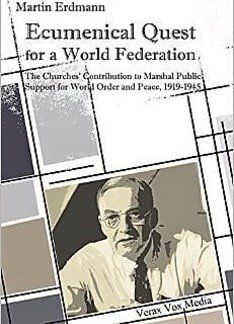Classical mysticism was virtually unknown in evangelical circles until 1978, when Quaker minister Richard J. Foster published Celebration of discipline, the path to spiritual growth. Hailed by Christianity Today as one of the ten best books of the twentieth century, and voted by the readers of that magazine as the third most influential book after the Bible, Celebration of discipline has blown the doors off an evangelical understanding of spirituality.
What Foster has done, in essence, is reintroduce to the church the so-called ‘masters of the interior life’, as he likes to call the Medieval mystics. He declares that they alone have discovered the key to true spiritual life. Over the last few years, he has convinced multitudes that he is right.
It seems to me that Foster’s recipe for Christian living has been simmering in the pot for over two decades but has now caught fire. Organisations such as Youth Specialties, numerous Bible colleges, and a rash of books and speakers, are all busy introducing mystical theology and practices to our young people and our young ministers.
Many of these, having grown up in churches that no longer teach Scripture and so lack biblical discernment, are easy prey for techniques that promise life-changing encounters with God. What, then, are Foster’s key teachings?
In general
Celebration of discipline is an encyclopedia of theological error. These errors include faulty views on the subjective guidance from God; approval of New Age teachers; occultic use of imagination; open theism; misunderstanding of the will of God in prayer; promotion of visions, revelations and charismatic gifts; and the endorsement of rosary and prayer wheel use.
To these can be added misunderstanding of the Old Testament Law for today; mystical journaling; pop-psychology; Roman Catholic concepts such as ‘spiritual directors’, confession and penance; and aberrant charismatic practices.
Foster introduces dozens of mystics to the unsuspecting reader – some from the Christian tradition, some not. All, he assures us, have reached heights of spiritual experience that we moderns cannot even imagine.















